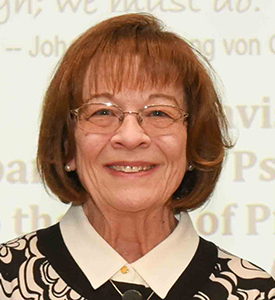Psychology
Dr. Allbaugh studies resilience and relational wellbeing among adult survivors of childhood maltreatment; trauma-focused intervention; mindfulness and compassion; and barriers to treatment.
Dr. Bauer studies the development of self-identity and personality across the life course, with an emphasis on meaning-making in life stories, growth motivation, the quiet ego and humane flourishing.
Dr. Griggs' research explores relationships between alcohol, stress, anxiety and the brain in preclinical models; effects of long-term alcohol exposure and withdrawal on brain; environmental and physiological factors that predict high levels of alcohol consumption; neurobiological consequences of alcohol and/or stress in male and female subjects (rats).
Dr. Crutcher studies cognitive psychology and cognitive neuroscience; human memory; language processes; improving human memory and thinking skills; and verbal reports.
Dr. Davis' MAAP lab studies cognitive processes, broadly: Memory, Attention, Aesthetic preferences, and Perception. More specific current projects include memory consolidation, change blindness, detection of deception, and overconfidence in decision making.
Dr. Elvers studies the interactions of humans and animals and explores the way animals perceive the world. He is a cognitive psychologist.
Dr. Goodnight studies child and adolescent psychopathology; parent and peer effects on antisocial behavior; impulsivity and self-regulation; and parent-initiated interventions for childhood behavior problems.
Dr. Kunz' research examines the influence of visual perception and motor movements.
Dr. Losee studies how people respond to emerging threats like severe weather, pandemics and political instability using insights from social, cognitive, personality, health, political and disaster psychology.
Dr. O'Mara Kunz's research broadly focuses on self processes and social perception.
Dr. Reeb studies psychopathology; homelessness; self-efficacy theory; participatory community action research; service-learning pedagogy; and engaged scholarship.
Dr. Walsh-Messinger investigates the phenomenology, neurobiology, and etiology of the emotional, motivational, and social deficits in serious and persistent mental illness. Specifically, her research focuses on: 1) the intersection of cognitive and affective dysfunction in schizophrenia and related disorders, 2) identifying biomarkers of psychopathology, 3) developing, validating, and refining measures of psychopathology. She is also interested in the influence of biological sex on the etiology, underlying neurobiology, and expression of psychopathology.
Dr. Wagner research includes cognitive development, specifically executive functioning skills and mathematical cognition; early childhood education and intervention and poverty and child development.
Dr. Zhao's research focuses on social and emotional development in childhood and adolescence; parenting and peer relationships; and cultural influences in children's and adolescents' development.
Dr. Lutz Zois’ research focuses on intimate partner violence and it’s effects on victims, and aspects of psychopathy such as emotional dysregulation, the role of empathy, self-injurious behavior and the role of self-compassion.
Research resources for faculty
The Department provides information that lends guidance to faculty in their research efforts.
PSY 101 Research Participation Summary: Research participation forms can be found on Porches.
Research review and ethics: The Department of Psychology's Research Review and Ethics Committee is a sub-committee of the University's Institutional Review Board for the Protection of Human Subjects in Research (IRB) that is authorized to review and approve studies that involve human participants or records from human participants that involve no more than minimal risk and will not receive federal funding. All proposals that receive federal funding or are judged by the Department of Psychology's Research Review and Ethics Committee as involving more than minimal risk must be submitted to and approved by the IRB. More information can be found on Porches.















